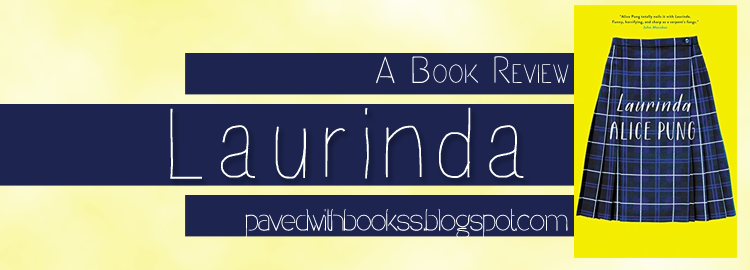
Elspeth’s struggle to understand herself and her place in the world showed me how fiction can be a kind of mirror – how it can help us understand not just other people, but also ourselves. Isobelle Carmody’s Obernewtyn was the first book that got me, that I really got, that made me gasp with the recognition that this was what fiction could do. A large part of my enjoyment of reading Harry Potter was reading about Hogwarts itself, the professors and the classes and the homework (though don’t get me started on how pedagogically backwards that place is). It started with Enid Blyton’s Mallory Towers, St Clare’s and The Naughtiest Girl at School books – how I wished I was getting on the train with Darrell, holding our breath for the first glimpse of the hallowed halls, playing pranks on our French mistresses and eating midnight feasts in the dormitory. And I love reading fiction, be it young adult or not, set in high school.

That said, reading your favourite kind of book is a damn good feeling. Reading your favourite kind of book is a damn good feeling. I’m not embarrassed about reading young adult fiction, but I would be embarrassed to dismiss a whole collection of books just because someone had told me that they weren’t written for me. When Ruth Graham tells me to be embarrassed about reading young adult fiction, she unintentionally reminds me of what I want my reading habits to be. It’s too easy to read only what we know and feel comfortable with. I want to push myself to read books I wouldn’t instinctively reach for, to read different forms and genres and authors. Rather, I read beyond YA because I want a reading diet that is diverse and varied. As a primary teacher, it is something about which I try to teach my students: if you always choose the same kinds of books, what could you be missing out on? I don’t want to read young adult fiction exclusively: but not because it isn’t good for me. You can read what you want to read, and you can do so with thoughtfulness and awareness. There’s something suspicious about the idea that to read young adult fiction or watch romantic comedies is to indulge in a ‘guilty pleasure’ that’s no good for you. But you should feel embarrassed when what you’re reading was written for children.’ My response: shut up.

In Slate, Ruth Graham writes ‘Read whatever you want.


This set of attitudes has fed into the debate around young adult fiction, and whether adults should be reading – and indeed, celebrating – the genre. Classics, literature, arthouse movies are broccoli, spinach, and oatmeal porridge chick lit, romantic comedies, and young adult novels are ice cream, chips and sauce, fairy floss, and sugary cereals. Some people approach art the same way they approach choosing what to eat.


 0 kommentar(er)
0 kommentar(er)
